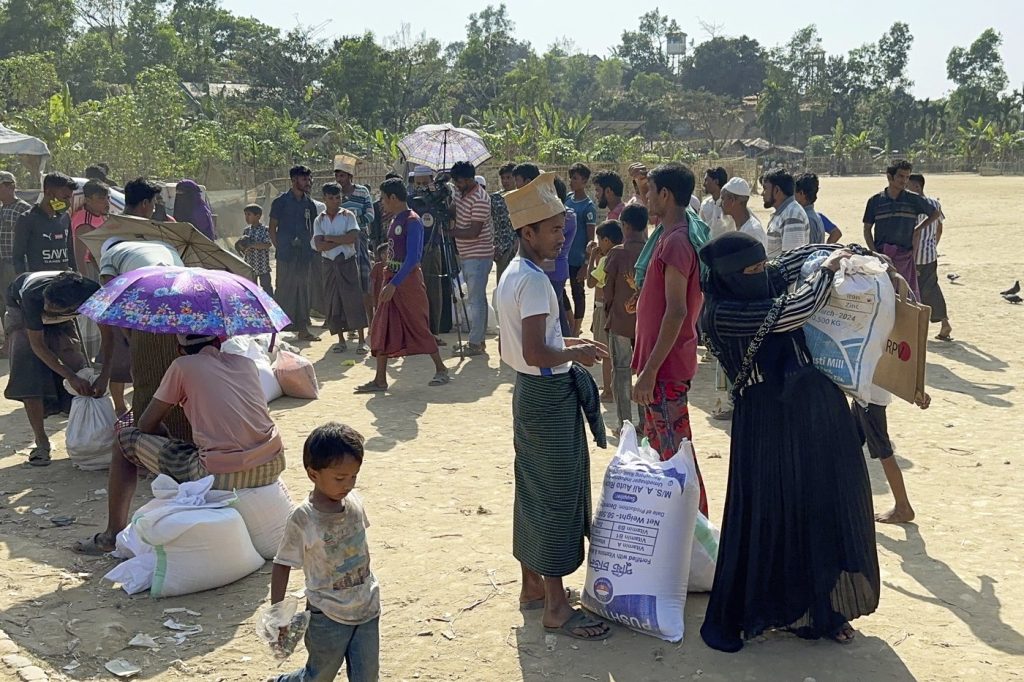In Cox's Bazar, Bangladesh, Rohingya refugees are experiencing anxiety due to a new decision by the World Food Program (WFP) to reduce food rations by half, starting April 1. This reduction will affect over 1 million refugees who rely heavily on food assistance. Shamsud Douza, the additional refugee relief and repatriation commissioner of Bangladesh, expressed concerns that the cut will significantly impact nutrition among the Rohingya population and create “social and mental pressure” throughout their communities.
The decision comes amid broader funding cuts by the U.S. government, which has historically been the largest donor supporting Rohingya refugees in Bangladesh. Following President Donald Trump’s administration, which halted much foreign aid and essentially froze the operations of the U.S. Agency for International Development (USAID), there has been significant strain on humanitarian efforts. The U.S. typically contributes nearly half of the aid directed towards the Rohingya, with approximately $300 million allocated in 2024.
The WFP announced that monthly assistance will drop from $12.50 to just $6, a drastic decrease that has invoked fears among the refugees about their ability to procure essential foods like rice, oil, and other staples. Manzur Ahmed, a 40-year-old refugee, described his worry about how he would manage to provide for his family without income-generating opportunities. The drastic fall in aid raises alarming questions about survival and sustenance under already dire circumstances.
Furthermore, medical services within refugee camps are also deteriorating, according to reports from the refugees. Access to basic healthcare has diminished, with hospitals now prioritizing emergency cases over standard treatments. Dildar Begum, a 32-year-old refugee, noted that previously accessible medical care has become increasingly limited, affecting her and her community’s health and well-being.
Since late August 2017, over 700,000 Rohingya Muslims have fled from Myanmar due to military operations that led to widespread violence and persecution. This ethnic group faces systemic discrimination and lacks fundamental rights within Myanmar, where a military coup in 2021 exacerbated ongoing conflicts. As conditions worsen, many refugees feel trapped, reliant on aid that is steadily being scaled back.
Despite ongoing pressures from the international community, the Bangladesh government asserts that Rohingya refugees must return to Myanmar, while international legal proceedings have recognized genocide claims against the Myanmar military for their treatment of the Rohingya. The complexities of the situation highlight the intertwined humanitarian and political crises impacting the region.
The interim Bangladeshi government has acknowledged the impact of the cessation of USAID payments on various domestic projects, yet assures that funding for Rohingya refugees will persist. The long-term implications of reduced aid and support require careful monitoring as the Rohingya continue to live in precarious conditions, compounded by insufficient resources and healthcare.
As news of the impending food ration cuts spreads among the refugee population in Cox’s Bazar, widespread fears and frustrations permeate the camps, underlining the urgent need for humanitarian support in a rapidly deteriorating environment.










